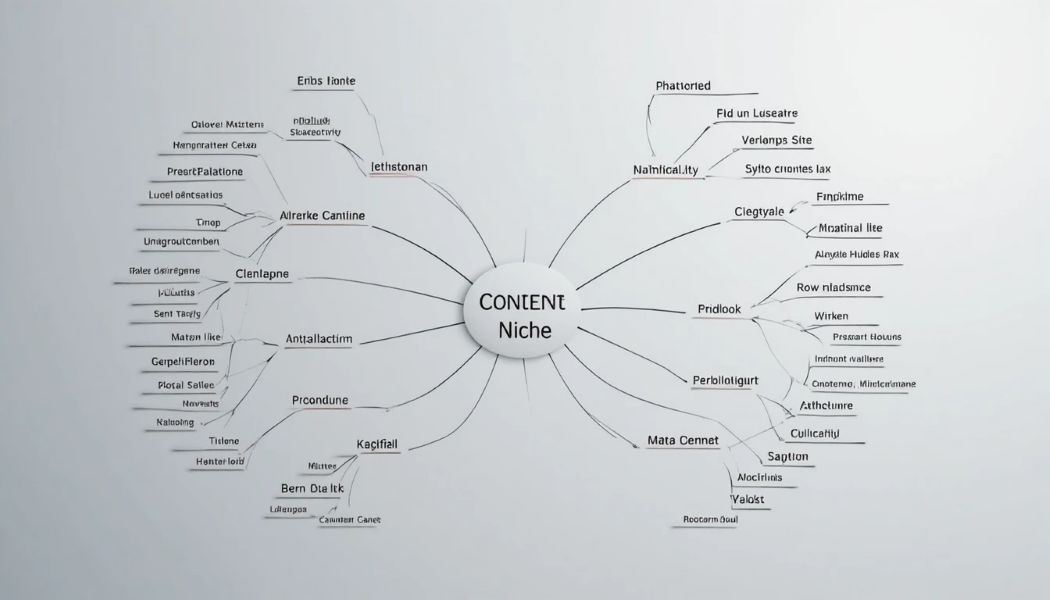Why 2026 Will Be a Reset Year for Affiliate Marketers
If you’ve been in affiliate marketing for any amount of time, you already know this industry never stays still for long. One year, Google rolls out major updates that punish low-quality content. The next, AI tools flood the internet with auto-generated articles and “done-for-you” shortcuts. Social media shifts, user behavior changes, and suddenly the strategies that worked last year start feeling… outdated.
So what does that mean heading into 2026?
In short: affiliate marketing isn’t dying — it’s maturing.
And for honest, hard-working marketers, that’s actually great news.
Over the last few years, we’ve watched a massive separation take place between two groups:
-
People chasing shortcuts, using AI to pump out endless shallow content, and relying on hype-heavy funnels.
-
People building trust, learning real skills, and creating content that genuinely helps their audience.
Guess which group 2026 is going to reward?
The second one — by a mile.
Consumers are savvier than they’ve ever been. They’ve been burned by fake gurus, overpriced “blueprint” courses, and flashy income claims that never materialize. At the same time, Google has doubled down on rewarding real-world experience, helpful information, and websites that show consistent authority in their niche. If you’ve read my post Exposing Online Scams And The Legit Path To Success, you already know exactly why this shift was inevitable.
2026 isn’t just another year of new trends — it’s a reset.
A shift back toward substance, honesty, and actual expertise.
A year where cutting corners becomes a losing strategy, and adding authentic value becomes the winning one.
Whether you’re brand new to affiliate marketing or you’ve been in the trenches for a decade, now is the time to pay attention. The decisions you make in the next 6–12 months will determine whether you spend 2026 chasing algorithms… or confidently leading your niche.
With that said, let’s break down the five trends every smart affiliate marketer needs to understand heading into the new year — and how to position yourself on the right side of this industry-wide shift.
“In the spirit of transparency — something this industry needs more of — a few of the links below may be affiliate links. Here’s what that means for you:”
Affiliate Disclaimer:
Some of the links in this post may be affiliate links. If you choose to sign up or purchase through them, I may earn a small commission at no extra cost to you. I only recommend tools and programs I personally use and trust.
AI Will Boost Productivity — But Human Authority Will Win Rankings
AI has changed the game in every industry, and affiliate marketing is no exception. In 2026, AI is going to be everywhere — but not in the way most people think. The big misconception is that AI will replace affiliate marketers. That’s not what’s happening. Instead, AI is becoming a powerful assistant that helps you work faster, do better research, and organize your ideas. But it cannot replace what truly matters: your experience, your voice, and your ability to help real people make real decisions.
Here’s the honest truth: the last two years have been flooded with AI-generated fluff. Auto-blogs, AI-written product reviews from people who’ve never tested a thing, and “push-button income systems” promising effortless money. And what’s happened to those sites? They’re tanking — hard. Google has repeatedly made it clear that it can detect shallow content written just to rank, and more importantly, it can detect whether the writer actually knows what they’re talking about.
This is why experience-first content is becoming the most valuable asset you can have. Real-world insight beats AI output every day of the week. When you talk about something you’ve personally tried, tested, or struggled with, readers feel it — and Google does too. Screenshots, step-by-step walk-throughs, real examples, and stories from your own journey are becoming ranking signals whether Google calls them that or not.
The affiliates who win in 2026 won’t be the ones who publish the most — they’ll be the ones who publish the most useful. AI will help you outline, fact-check, and polish your writing, but it’s your unique perspective that keeps people reading and coming back. That’s also why beginner-friendly guides grounded in real experience still matter. If someone is just starting out and wants to build on a foundation that doesn’t fall apart in six months, my article Affiliate Marketing How To For Beginners is more relevant than ever. It teaches the fundamentals that shortcuts can’t cover.
AI isn’t the enemy — but it’s not the solution either. Think of it as a power tool. In the hands of someone who knows what they’re doing, it speeds up the job. In the hands of someone looking for a way to avoid doing the work, it just makes the mistakes happen faster.
In 2026, the affiliates who rise to the top will be the ones who match AI’s efficiency with authentic human authority. The combination of the two — not one or the other — is where the real opportunity lies.

Niche Authority Sites Will Outperform Broad, General Sites
One of the biggest shifts we’ll see in 2026 is the move away from broad, “write about everything” websites and toward tightly focused niche authority sites. This trend has been building for a while, but the latest Google updates have made it crystal clear: depth beats breadth. Gone are the days when someone could publish a handful of surface-level posts on random topics and expect to rank. The internet simply has too much competition — and readers have too many options — for shallow coverage to work anymore.
Authority is built through consistency, not randomness. When your content stays focused around a clear topic, Google begins to understand what your site is truly about. More importantly, readers do too. If someone visits your site for information about affiliate marketing, preparedness, online entrepreneurship, or whatever your focus may be, they expect the next article they click to be related, helpful, and connected to the same mission. When a website jumps from “AI tools” to “survival backpacks” to “dog food reviews,” trust drops instantly — and so does ranking potential.
In 2026, niche authority will be the backbone of sustainable affiliate businesses. This means going deeper than competitors, covering all angles of a topic, answering questions people haven’t asked yet, and becoming the “go-to” resource in your corner of the internet. It’s not about how many topics you cover — it’s about how thoroughly you cover the right ones.
This also ties directly into skill-building. Becoming an authority means leaning into the skills real online entrepreneurs develop over time — things like research, audience understanding, writing clear explanations, and building trust with readers. If you haven’t read it yet, my article Essential Skills For Online Entrepreneurs breaks down exactly what separates long-term earners from people chasing shortcuts. These skills become even more valuable in a niche-focused landscape.
Another reason niche authority matters? It helps protect beginners from falling into the trap of believing common industry myths. Every year, thousands of people are misled by claims like “You need multiple niches to succeed” or “Just publish more posts and you’ll rank.” In reality, spreading yourself thin is one of the fastest ways to stay stuck. If you want a deeper look at the misconceptions holding beginners back, Affiliate Marketing Myths That Keep Beginners Broke (And How To Avoid Them) is a must-read — and it aligns perfectly with the direction 2026 is heading.
The bottom line is simple: a niche authority site doesn’t just perform better — it builds trust, boosts retention, improves conversions, and positions you as a true expert in a world full of generalists. And that’s exactly what readers — and Google — are looking for in 2026.

Radical Transparency Will Become the Industry Standard
If there’s one theme that defines where affiliate marketing is heading in 2026, it’s this: people are done with hype. Readers are tired of being promised overnight success, passive income with zero effort, or “AI systems” that will magically build a business for them. Trust has been broken so many times that consumers now approach every recommendation with caution — and honestly, I can’t blame them.
We’re living in an online world where skepticism is the default setting. When someone clicks a review, they’re not looking for a sales pitch. They’re looking for clarity. They want honest pros and cons, real screenshots, actual results when possible, and a transparent explanation of who a product isn’t for. The days of sugar-coating weaknesses or hiding disclaimers at the bottom of the page are over. Readers see through it instantly.
This is the shift that separates legitimate affiliate marketers from the gurus. In 2026, the people who win will be the ones who tell the truth—even when the truth might cost them a commission. That honesty builds long-term authority that money can’t buy.
Transparency isn’t a gimmick; it’s a leadership trait. And your audience recognizes it the moment they land on your site. They can feel whether you’re trying to help them or sell them. This is why educational pieces like Exposing Online Scams And The Legit Path To Success perform so well. They don’t talk down to the reader, and they don’t hide anything. They walk people through the landscape of scams, hype, and unrealistic promises so they can make decisions with their eyes open.
This is also where my #1 recommendation fits naturally — not as a sales tactic, but as the logical alternative to platforms that overcharge and underdeliver. I’ve spent more than a decade reviewing programs, courses, and “systems.” I’ve seen $2,000 upsells, $5,000 coaching packages, and “high-ticket blueprints” priced anywhere from $7,500 to $12,000… all teaching information you can get elsewhere for a fraction of the cost.
That contrast matters.
If someone wants a platform that prioritizes ethical training, realistic expectations, and community-based support, the most transparent option I can point them to is the one I use myself: Wealthy Affiliate. It’s not perfect — and I say that in my review — but it’s honest, affordable, and built around long-term skill development rather than manufactured hype. If you want my full breakdown, you can find it in My Honest Wealthy Affiliate Review: An Up-To-Date Look Inside.
As 2026 unfolds, expect transparency to become a requirement rather than an optional bonus. Readers are demanding it. Google is rewarding it. And the affiliates who embrace it will separate themselves from a crowded field of marketers who rely on outdated tricks.
Radical honesty doesn’t stunt your growth — it multiplies it. Because once readers realize you’re willing to tell them the truth, they’ll trust you for the long haul.
Video Will Support Your Content — Not Replace It
Every few months, someone predicts the death of blogging. Usually, it’s a YouTuber trying to sell the idea that long-form content is obsolete and video is the only format that matters. But here’s the truth grounded in real, measurable data: video isn’t replacing written content — it’s enhancing it. In 2026, the strongest affiliate marketers will be the ones who know how to use both strategically, not abandon one for the other.
Blogs are still incredibly powerful for in-depth learning, search visibility, and long-term traffic growth. People turn to written content when they want details, comparisons, step-by-step instructions, or a trusted breakdown of something important. Video shines in a different way. It builds trust faster, puts a human behind the words, and helps your audience feel connected to you — especially in a world where AI-generated text is everywhere.
That’s why 2026 is shaping up to be the year of hybrid content. Not “pick one and ignore the other,” but layering the two together:
-
Use a quick 30–60 second video to explain a concept your blog post covers in depth.
-
Film a short product demo to support a written review or tutorial.
-
Create an over-the-shoulder walkthrough for content that doesn’t need your face on camera.
-
Turn your blog post into a script outline and repurpose it for Shorts, Reels, or TikTok.
-
Embed those videos back into your articles to strengthen user engagement.
It’s a loop — and that loop builds authority.
Readers consume written content when they want clarity. They watch videos when they want connection. When you provide both, people stick around longer, trust you faster, and return more often. Google pays attention to that behavior, too. Longer dwell time, lower bounce rates, and mixed-media pages often rank better because they serve users on multiple levels.
Something else to consider: video doesn’t have to be complicated. In fact, simple, honest videos often perform better than highly polished ones. People don’t want a commercial; they want authenticity. They want to know a real person is behind the advice. If you’ve ever wondered whether affiliate marketing actually works for everyday people — not just influencers with big production budgets — you’ll understand why my post Does Affiliate Marketing Really Work? continues to resonate. The answer, of course, is yes — but only when it’s built on substance.
That’s the key connection between your blog and your videos. Both formats allow you to stand out by being helpful, not flashy. Both give you space to show what you know. And when your content feels real, readers naturally start viewing you as someone they can trust.
In 2026, the winners won’t be those who chase trends or try to reinvent everything. The winners will be those who thoughtfully integrate simple, honest video content to support the depth and authority of their written work.
Your Email List Will Become the Most Valuable Asset You Own
If there’s one thing that’s becoming clearer every year, it’s this: you don’t own your social media following, your search traffic, or your visibility on anyone else’s platform. Algorithms shift without warning. Entire traffic sources vanish overnight. One day you’re getting steady clicks… the next your reach is cut in half because a company updated its policy or rolled out a new recommendation engine.
Email is different.
Your email list is the one asset no algorithm can take away from you. It’s direct, personal, and incredibly stable — a lifeline between you and the people who actually want to hear from you. And in 2026, email will play an even bigger role in successful affiliate marketing than it has in the last decade.
Here’s why: people are tired of noise. Their feeds are overwhelmed with short-form videos, ads, AI-generated content, and the same regurgitated advice from a dozen different creators. Email cuts through that. When someone invites you into their inbox, they’re giving you their attention — not because the platform recommended you, but because they trust you.
Affiliates who treat their email list like a community — not just a broadcast tool — will have a tremendous advantage going forward. The trend is shifting toward:
-
newsletter-style emails that feel personal
-
short weekly updates that educate rather than sell
-
micro-courses delivered over 7–10 days to help beginners build momentum
-
segmented lists based on interests
-
simple automation that supports the reader rather than bombarding them
These formats build connection over time. They strengthen your brand identity. They give you a stable platform that isn’t at the mercy of AI changes, Google updates, or shifting social trends.
Email also pairs beautifully with long-term income streams. When someone joins your list, they’re not just reading one article — they’re entering your ecosystem. If you’ve ever read my post Passive Income Ideas For Digital Nomads, you already know that long-term income isn’t about quick wins; it’s about creating systems that continue working even when you’re not glued to your laptop. Your email list is one of those systems. It’s a foundation that supports everything else you build.
The affiliates who thrive in 2026 will be the ones who move away from “post and pray” marketing and into intentional relationship-building. They’ll publish helpful content, guide people into their email community, and deliver consistent value over time. That creates trust. Trust creates conversions. And conversions — the ethical kind — create the kind of business that lasts.
An email list won’t protect you from every shift in the digital world, but it will give you something far more important: control. In a landscape that’s changing fast, having a stable, owned audience isn’t just smart — it’s essential.
How to Prepare for These Shifts (2026-Ready Checklist)
Understanding the trends is one thing — preparing for them is where the real advantage lies. The affiliate marketers who thrive in 2026 won’t be the ones who chase every new tool or jump on every “secret strategy.” They’ll be the ones who apply timeless principles with modern tools, stay focused on serving real people, and build a structure that supports long-term growth.
Here’s how to get ahead of the curve now:
Build authority, not volume
Publishing dozens of shallow posts won’t do you any favors. Instead, create content that goes deep, solves a real problem, and positions you as a trusted source. Authority beats quantity every single time.
Use AI for productivity — not shortcuts
AI can help you outline, research, brainstorm, and polish your writing. But it can’t replace your lived experience. Let AI support the process, not control it.
Embrace radical honesty
Tell readers the truth, even if it means they choose not to buy something. Transparency builds brand loyalty — and loyalty builds predictable income.
Add simple video content where it makes sense
Short, honest videos strengthen trust and support your written content without requiring a full production setup. Think “helpful,” not “Hollywood.”
Grow your email list intentionally
Your list is your safety net. Treat it like an actual community, not a dumping ground for promotions. Deliver consistent value and build long-term relationships.
Promote ethical, sustainable programs
It’s not just good for your conscience — it positions you on the right side of the industry shift happening in 2026.
This brings us to the final piece of the puzzle: choosing a training platform that supports these values and prepares you for the industry we’re stepping into.
A Solid Foundation Matters — Here’s Where to Start
If you’ve made it this far, one thing is probably clear: affiliate marketing in 2026 isn’t about loopholes, hacks, or jumping from one shiny object to the next. It’s about grounding yourself in real skills, transparent strategies, and a long-term approach that isn’t shaken every time Google or social media changes direction.
That’s why choosing the right training platform matters — not because you need someone to hand you a magic blueprint, but because you deserve a foundation that won’t collapse six months from now. Over the years, I’ve reviewed hundreds of programs, systems, courses, and “secret formulas.” Some were overpriced. Some were outright scams. And some simply didn’t offer the long-term value they promised.
There’s only one platform I continue recommending year after year because it aligns with everything this article stands for: honesty, skill-building, and long-term sustainability. If you want a training environment that teaches proven fundamentals, provides real support, and doesn’t lead you into a $5,000 upsell funnel, I break it all down in My Honest Wealthy Affiliate Review: An Up-To-Date Look Inside. It’s the same platform I personally use — and have used consistently since 2014.
Affiliate marketing in 2026 rewards the people who build real authority, help real readers, and commit to continuous improvement. If that’s the path you want to take, you’re already ahead of the curve.
And if you found this guide helpful, feel free to drop a comment, share it with someone starting their online journey, or dive into any of the deeper resources I’ve linked throughout the article. Your voice — your honest voice — is what sets you apart in this industry.
Start Your Free Wealthy Affiliate Account
FAQ: Affiliate Marketing Trends 2026
Is affiliate marketing still profitable in 2026?
Yes — more than ever, actually. But it’s only profitable for people who approach it with real skill, patience, and transparency. The days of low-effort content and spammy tactics are over. In 2026, the affiliates who succeed will be the ones who build trust, focus on helping readers, and create genuinely useful content.
Do I need a website to succeed with affiliate marketing in 2026?
A website is still the most stable, long-term platform you can own. Social media is helpful, video is powerful, but your website is the foundation that won’t disappear when an algorithm changes. You can start with social content, but if you want real stability, a website is essential.
Will AI replace affiliate marketers?
Not even close. AI can speed up your workflow, but it cannot replace your experience, personal stories, human insight, or the ability to help someone make a smart decision. AI-only sites are declining. Human-led, AI-supported content is rising. That balance is exactly what Google rewards.
How long does it take to see results with affiliate marketing?
Most beginners need 6–12 months to build traction, depending on effort, consistency, and niche. There are no shortcuts, despite what the gurus claim. But with the right strategy — and the right foundation — results compound over time and become increasingly passive.
What’s the biggest mistake beginners make in affiliate marketing?
Trying to do everything at once. They chase multiple niches, follow every new tactic, and burn themselves out. In 2026, the winning approach is to stay focused, build topical authority, and create content that actually helps people. Slow, consistent progress beats frantic multitasking every time.
What training platform should beginners use to start the right way?
Beginners should choose a platform that teaches fundamentals, avoids hype, and prioritizes long-term skill-building. I break down the platform I personally use (and have trusted since 2014) in My Honest Wealthy Affiliate Review. If you want to start on solid ground, it’s worth reading.
About the Author
 Hi, I’m Jason Taft — the guy behind ScamBustersUSA. I started this website after getting burned by more “systems” and fake gurus than I can count. In my early days online, I fell for high-ticket promises, done-for-you funnels, and programs that talked a big game but delivered almost nothing. Losing that money hurt, but it also opened my eyes to how easily beginners get taken advantage of.
Hi, I’m Jason Taft — the guy behind ScamBustersUSA. I started this website after getting burned by more “systems” and fake gurus than I can count. In my early days online, I fell for high-ticket promises, done-for-you funnels, and programs that talked a big game but delivered almost nothing. Losing that money hurt, but it also opened my eyes to how easily beginners get taken advantage of.
Instead of quitting, I made a decision:
I was going to learn this industry the right way — and then help others avoid the traps I fell into.
Since 2014, I’ve been building honest affiliate sites, reviewing programs with full transparency, and sharing what actually works long-term. No hype. No shortcuts. No inflated income claims. Just real-world experience from someone who’s been in the trenches for over a decade.
My mission today is simple:
protect beginners, expose scams, and point people toward ethical, proven paths that won’t drain their bank accounts.
If my articles help someone avoid a bad decision — or finally start building something real — then every hour I spend researching and writing is worth it. I’m here to give you the truth, even when it’s not popular, and to help you build a business you can be proud of.

